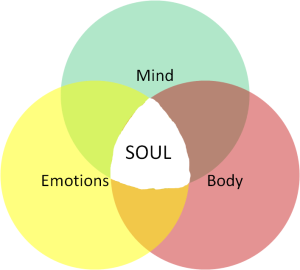Hello! Today we will see how the basic principles of ecosystems organization can be used to build sustainable human communities. Thus, taking into account the experience of over three billion years of evolution of Earth’s ecosystems, following are their principles (based on the book “The Web of Life” by Fritjop Capra):
Interdependence: all members of an ecological community are interconnected in a vast network of relationships, the web of life. Then, the interdependence (mutual dependence of all vital processes at organisms) is the nature of all ecological relationships. Thus, it is important to change our perception of parts to whole, from objects to relationships, content to standard, i.e., think in a systemic way. A sustainable human community is aware of the multiple relationships among its members, nurturing the community means nourishing those relationships. So the success of the whole community depends on the success of each of its members and the success of each member depends on the success of the community as a whole.
Recycling: being open systems, all organisms in an ecosystem produce waste, but what is waste for one species is food for another, so that the ecosystem as a whole remains free of waste. One of the main disagreements between economy and ecology comes from the fact that nature is cyclical whereas our industrial systems are linear. Therefore, we extract resources and turn them into products and waste. Sustainable patterns of production and consumption need to be cyclical, as in nature. To achieve these cyclical patterns, we need to redesign at a fundamental level our business and our economy. As examples, could be used more solar energy (which is the basic source of energy for ecosystems) and gradually implement ecological taxes (to prices better reflect the real costs).
Cooperation: at the ecosystems the cyclic exchanges of energy and resources are sustained by widespread cooperation. In actual human society, the economy emphasizes competition, expansion and domination; but the ecology emphasizes cooperation, conservation and partnership (seems that we are going the wrong way …). In human communities, partnership means democracy and personal empowerment, because each community member plays an important role. As a partnership proceeds, each partner begins to better understand the needs of others. In a true partnership, confident, both partners learn and change, they co-evolve.
Flexibility: in an ecosystem, is a consequence of its multiple feedback loops, which tend to bring the system back into balance whenever there is a deviation from the standard, due to changing environmental conditions. The lack of flexibility manifests itself as tension and this occurs when one or more system variables are pushed to its extreme values, which will lead to an enhanced rigidity throughout the system. Thus, administering a social system (an enterprise, a city or an economy) means finding the optimal values for the variables of the system. If we try to maximize any variable instead of optimizing it, this will lead to the destruction of the system as a whole. The principle of flexibility also suggests a corresponding strategy for resolving conflicts. In every community there will always be contradictions and conflicts that cannot be resolved in favor of one or the other side. For example, the community need for stability and change, order and freedom, tradition and innovation. These inevitable conflicts are much better solved by establishing a dynamic equilibrium, rather than hard decisions that favor one side only.
Diversity: at ecosystems, the role of diversity is closely linked with the network structure of the system. A diversified system is also flexible because it contains many species with overlapping ecological functions that can partially replace each other. In ecosystems, the complexity of the network is a consequence of their biodiversity and thus a diverse ecological community is an elastic community. In human communities, ethnic and cultural diversity can play the same role. Diversity means many different relations, many different approaches to the same problem. However, diversity is a strategic advantage only if there is a really vibrant communication, supported by a web of relationships. If the community is aware of the interdependence of all its members, diversity will enrich all relationships and thus enrich the community as a whole as well as to each of its members.
Now consider how these principles can be applied in your life. Thinking to understand, feel, change…


